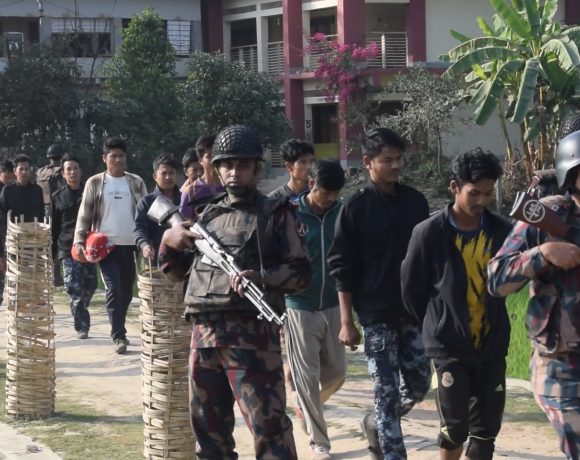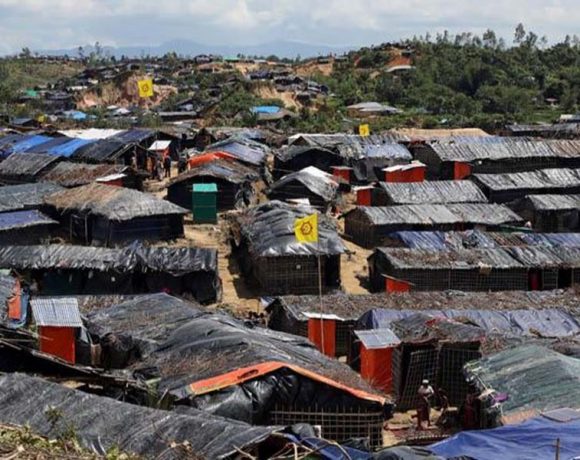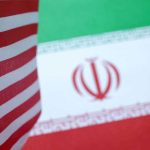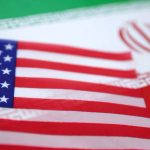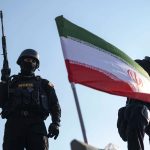Iran leader rejects US demand for surrender; Trump says patience has run out

Iranian Supreme Leader Ayatollah Ali Khamenei rejected Donald Trump’s demand for unconditional surrender on Wednesday, and the U.S. president said his patience had run out, though he gave no clue as to what his next step would be, Reuters reports.
Speaking to reporters outside the White House, Trump declined to say if he had made any decision on whether to join Israel’s bombing campaign against arch-enemy Iran.
“I may do it. I may not do it. I mean, nobody knows what I’m going to do,” he said.
Trump said Iranian officials had reached out about negotiations including a possible meeting at the White House but “it’s very late to be talking,” he said.
“Unconditional surrender, that means I’ve had it.”
Asked for his response to Khamenei rejecting his demand to surrender, Trump said: “I say, good luck.”
Iranians jammed highways out of the capital Tehran, a city of 10 million people, as residents sought sanctuary from intensified Israeli airstrikes.
In its latest bombing run, Israel said its air force destroyed Iran’s police headquarters.
Israeli Prime Minister Benjamin Netanyahu, in a video released by his office on Wednesday evening, said Israel was “progressing step by step” towards eliminating threats posed by Iran’s nuclear sites and ballistic missile arsenal.
“We control the skies over Tehran. We are striking with tremendous force at the regime of the ayatollahs. We are hitting the nuclear sites, the missiles, the headquarters, the symbols of the regime,” Netanyahu said.
He also thanked Trump, “a great friend of the state of Israel”, for standing by its side in the conflict, saying the two were in continuous contact.
Khamenei, 86, rebuked Trump in a recorded speech played on television, his first appearance since Friday.
The Americans “should know that any U.S. military intervention will undoubtedly be accompanied by irreparable damage,” he said.
“Intelligent people who know Iran, the Iranian nation and its history will never speak to this nation in threatening language because the Iranian nation will not surrender.”
Iran summoned the Swiss envoy in Tehran, as the representative of U.S. interests, to protest Trump’s “provocative remarks,” Iranian media said.
Trump has veered from proposing a swift diplomatic end to the six-day-old war to suggesting the United States might join it. In social media posts on Tuesday, he mused about killing Khamenei, then demanded Iran’s “UNCONDITIONAL SURRENDER!”
A source familiar with internal discussions said Trump and his team were considering options that included joining Israel in strikes against Iranian nuclear installations. Defense Secretary Pete Hegseth told a Senate committee that the Pentagon was prepared to execute any order given by Trump.
Iran’s mission to the United Nations mocked Trump in posts on X: “Iran does NOT negotiate under duress, shall NOT accept peace under duress, and certainly NOT with a has-been warmonger clinging to relevance,” it wrote.
“No Iranian official has ever asked to grovel at the gates of the White House,” it said. “The only thing more despicable than his lies is his cowardly threat to ‘take out’ Iran’s Supreme Leader.”
Israel’s military said scores of Israeli jets had struck targets in and around Tehran and in western Iran in the previous 24 hours in three waves, hitting sites producing raw materials, components and manufacturing systems for missiles.
“We are focusing on Tehran. Among the targets we attacked was the site of a centrifuge manufacturing site crucial to the Iranian regime’s attempt to enrich uranium,” Israeli military spokesperson Brigadier General Effie Defrin said.
FLEEING TEHRAN
Arezou, a 31-year-old Tehran resident, told Reuters by phone that she had made it out of the city to the nearby resort town of Lavasan.
“We will stay here as long as this war continues. My friend’s house in Tehran was attacked and her brother was injured. They are civilians,” she said. “Why are we paying the price for the regime’s decision to pursue a nuclear programme?”
In Israel, sirens rang out anew at dusk on Wednesday warning of further incoming Iranian missiles. There were no immediate reports of serious damage, while a motorist was injured by missile debris, Israeli medics said.
The army later advised civilians they could leave protected areas, signalling the threat had passed.
At Ramat Gan train station east of Tel Aviv, people were lying on city-supplied mattresses or sitting in the odd camping chair, with plastic water bottles strewn about.
“I feel scared, overwhelmed. Especially because I live in a densely populated area that Iran seems to be targeting, and our city has very old buildings, without shelters and safe spaces,” said Tamar Weiss, clutching her four-month-old daughter.
Iran has reported at least 224 deaths in Israeli attacks, mostly civilians, but has not updated that toll for days.
In Israel, the Iranian missile salvoes mark the first time in decades of shadow war and proxy conflict that a significant number of projectiles fired from Iran have penetrated defences, killing Israelis in their homes.
Since Friday, Iran has fired around 400 missiles at Israel, some 40 of which have pierced air defences, killing 24 people, all of them civilians, according to Israeli authorities.
LEVERAGE
Iran has been exploring options for leverage, including veiled threats to hit the global oil market by restricting access to the Gulf through the Strait of Hormuz, the world’s most important shipping artery for oil.
Oil prices leapt 9% on Friday and have marched higher this week. The CEO of Italian energy company Eni (ENI.MI) said the rises so far were still limited.
Inside Iran, authorities are intent on preventing panic and shortages. Fewer images of destruction have been allowed to circulate than in the early days of the bombing, when state media showed pictures of explosions, fires and flattened apartments. A ban on filming by the public has been imposed.
The communications ministry said on Wednesday that temporary restrictions on internet access would be imposed to help prevent “the enemy from threatening citizens’ lives and property”.
Iran’s ability to hit back hard at Israel through strikes by proxy militia close to Israeli borders has been limited by the devastating blows Israel has dealt to Tehran’s regional allies – Hamas and Hezbollah – in conflicts in Gaza and Lebanon since 2023.

